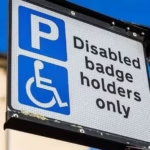After four decades of outdated regulations, the Driver and Vehicle Licensing Agency (DVLA) has unveiled sweeping reforms to how classic and historic vehicles are registered in the UK. The changes, taking effect on August 26, 2025, represent the most significant overhaul since the 1980s and could transform the £4 billion classic car industry.

What’s Changed: Three Key Updates
The new regulations introduce three major improvements that address long-standing frustrations within the classic car community:
Simplified Repairs and Restorations Classic car owners can now carry out like-for-like repairs and restorations without notifying the DVLA, provided the vehicle maintains its original appearance and no changes are made to the logbook (V5C). This eliminates bureaucratic hurdles that previously made routine maintenance unnecessarily complicated.
Protection for Modified Vehicles Vehicles undergoing significant structural modifications can now retain their original Vehicle Identification Number (VIN) and registration number. While owners must still notify the DVLA of these changes, they no longer risk losing their car’s historic identity.
Electric Conversion Support Recognizing the growing trend of electric conversions, classic cars converted to electric powertrains can also keep their original identity, with notification to the DVLA still required.
The Problem These Changes Solve
The reforms address a systemic issue that has plagued classic car enthusiasts for decades. Until the 1980s, local DVLA offices would personally assess each vehicle and make informed decisions about modifications. However, cost-cutting measures led to centralization, creating a rigid system that operated under unpublished rules.
Paul Griffin, former HCVA board member, explained that even standard repairs could result in vehicles being assigned Q-plates (indicating unverifiable history) or new VINs. Appeals were largely unsuccessful, leaving owners frustrated with an “ambiguous, lengthy, and expensive” process.
Industry Impact and Economic Significance
The classic vehicle industry represents a substantial economic force, employing over 115,000 people – matching the entire UK ports sector and doubling the whisky industry’s workforce. The specialized skills required for classic car maintenance and restoration contribute an estimated £335 million annually to the UK economy.
With 3.1 million classic and historic vehicles currently registered in the UK, these policy changes could have far-reaching effects on vehicle preservation and the continuation of traditional automotive craftsmanship.

Government and Industry Response
Lilian Greenwood, Minister for the Future of Roads, positioned the changes as part of a broader effort to reduce bureaucracy while celebrating Britain’s automotive heritage. “These changes are about cutting red tape and making life easier for enthusiasts,” she stated.
Dale Keller, CEO of the Historic and Classic Vehicles Alliance (HCVA), praised the collaborative approach between industry and government, noting that the changes “place the retention of historic identity at the forefront of registration policy.”
The Path to Reform
The reforms emerged from a comprehensive Call for Evidence launched in May 2024, which received 1,350 responses in just eight weeks. This unprecedented level of engagement demonstrated the classic car community’s frustration with existing regulations and their desire for meaningful change.
DVLA Chief Executive Tim Moss emphasized that the updated policies reflect “modern restoration and modification practices,” ensuring that enthusiasts can focus on “preserving and enjoying these remarkable vehicles” rather than navigating bureaucratic obstacles.
Looking Forward
These policy changes mark a significant victory for classic car enthusiasts and industry professionals who have campaigned for decades against outdated regulations. By prioritizing the preservation of historic vehicle identity while accommodating modern restoration practices, the DVLA has created a framework that supports both tradition and innovation in the classic car world.
The reforms take effect on August 26, 2025, ushering in a new era for Britain’s classic car community.






